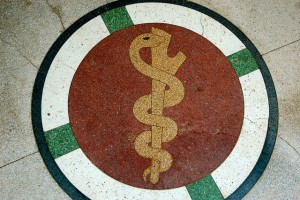 The next speaker in the JHU Conversations in Medicine series is Dr. Cindy Sears.
The next speaker in the JHU Conversations in Medicine series is Dr. Cindy Sears.
Dr. Sears is a Hopkins Professor of Medicine, Oncology, and Molecular Microbiology and Immunology. Yet her earliest PubMed article was “The Effectiveness of a Consultation” (American Journal of Medicine; 1983). She and her coauthors analyzed medical consultations to find out how many of the doctor’s initial recommendations for the patient were actually done. They found that “[c]ompliance decreased as the number of recommendations increased. …Compliance was higher when five or fewer recommendations were made.” [emphasis mine]
Her most recent article, published in January of this year, is listed by EMBASE as “in press” with the Journal of Acquired Immune Deficiency Syndromes. It concerns the relationship among gut microbiota, dietary nutrients, and cardiovascular disease. She and her colleagues are examining whether HIV-infected men have higher rates of coronary artery stenosis due to the presence of a chemical that is initiated by one’s gut microbiota. There’s a multidisciplinary topic for you.
Read more about about her research (scroll down). Obviously, Dr. Sears has studied several quite different aspects of medicine during her journey to becoming a Modern Doctor.
Where: Charles Commons Ballroom
When: Monday, March 7, 2016, at 7:00 PM
